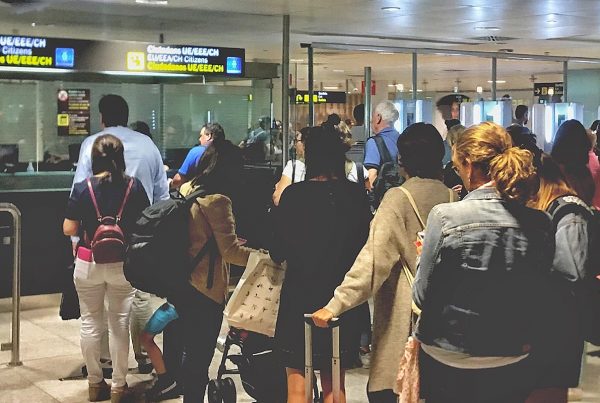Droits à la vie privée protégés par l'art. 8 de la Charte exiger que l’État évalue si une attente raisonnable de respect de la vie privée existe avant elle procède aux démarches d’enquête qu’elle envisage – non après. Cela signifie que les fruits d'une perquisition ne peuvent servir à justifier une atteinte déraisonnable à la vie privée. Cet argument était au cœur de l'intervention de l'ACLC devant la Cour suprême du Canada (CSC) dans Conseil scolaire du district de la région de York c. Fédération des enseignantes et des enseignants de l'élémentaire de l'Ontario.
Plus tôt dans la journée, la CSC a confirmé que les enseignants des conseils scolaires publics de l'Ontario sont protégés par l'article 8 de la Charte sur le lieu de travail. La décision majoritaire a également statué que l'évaluation de l'existence d'une attente raisonnable de respect de la vie privée au moment de la perquisition devait être neutre quant au contenu. La décision minoritaire a développé cette conclusion, expliquant que l'évaluation de l'attente raisonnable de respect de la vie privée des enseignants ne dépendait pas de ce qui était réellement trouvé. Ce qui comptait, c'était le potentiel que la perquisition révèle des renseignements touchant les renseignements biographiques essentiels des enseignants. Cela concorde avec les observations formulées par l'ACLC en tant qu'intervenante dans cette affaire. S'il en était autrement, les acteurs gouvernementaux comme les conseils scolaires seraient encouragés à lire un journal ou une conversation avant de se demander ce qu'ils doivent faire pour respecter les droits à la vie privée de leurs employés.
La décision minoritaire a également fait écho aux observations de l'ACLC sur la nécessité d'adopter une approche large et flexible de ce qui constitue une communication privée pour suivre l'évolution technologique et les nouvelles formes de communication. La décision minoritaire a statué que les informations contenues sur les appareils connectés à Internet tendent normativement à révéler les intérêts, les goûts et les propensions spécifiques d'une personne et qu'elles sont donc au cœur même du noyau biographique protégé par l'article 8. La majorité n'a pas abordé cette question directement.
Cet appel fait suite à une décision de la Cour d'appel de l'Ontario qui a statué qu'un directeur du York Region District School Board (le Conseil) avait effectué une perquisition et une saisie illégales de l'ordinateur portable d'un enseignant lorsqu'il avait consulté, lu et capturé des captures d'écran des communications privées de deux enseignants. Les captures d'écran de ces communications enregistrées dans leur journal personnel protégé par un mot de passe stocké dans le Cloud ont été utilisées dans le cadre de procédures disciplinaires contre les deux enseignants. Le syndicat a déposé un grief pour violation du droit à la vie privée des enseignants par le Conseil. L'arbitre a rejeté le grief et la majorité de la Cour divisionnaire a confirmé cette décision et rejeté la demande de contrôle judiciaire.
L'ACLC se réjouit du renforcement par la Cour suprême des principes bien établis de l'article 8. Étant donné que ces principes sont fondamentaux pour notre façon de concevoir la vie privée en vertu de l'article 8, leurs répercussions se feront sentir au-delà du contexte des conseils scolaires et plus largement dans toute affaire qui met en jeu les droits à la vie privée en vertu de l'article 8 de la Charte.
L'ACLC est reconnaissante pour l'excellent pro bono assistance de Gerald Chan et Olivia Eng de Stockwoods LLP dans cette affaire.
À propos de l’association canadienne sur les libertés civiles
L’ACLC est un organisme indépendant à but non lucratif qui compte des sympathisant.e.s dans tout le pays. Fondé en 1964, c’est un organisme qui œuvre à l’échelle du Canada à la protection des droits et des libertés civiles de toute sa population.
Pour les médias
Pour d'autres commentaires, veuillez nous contacter à media@ccla.org.
Pour les mises à jour en direct
Veuillez continuer à vous référer à cette page et à nos plateformes de médias sociaux. On est dessus Instagram, Facebook, Twitter et Ciel bleu.





